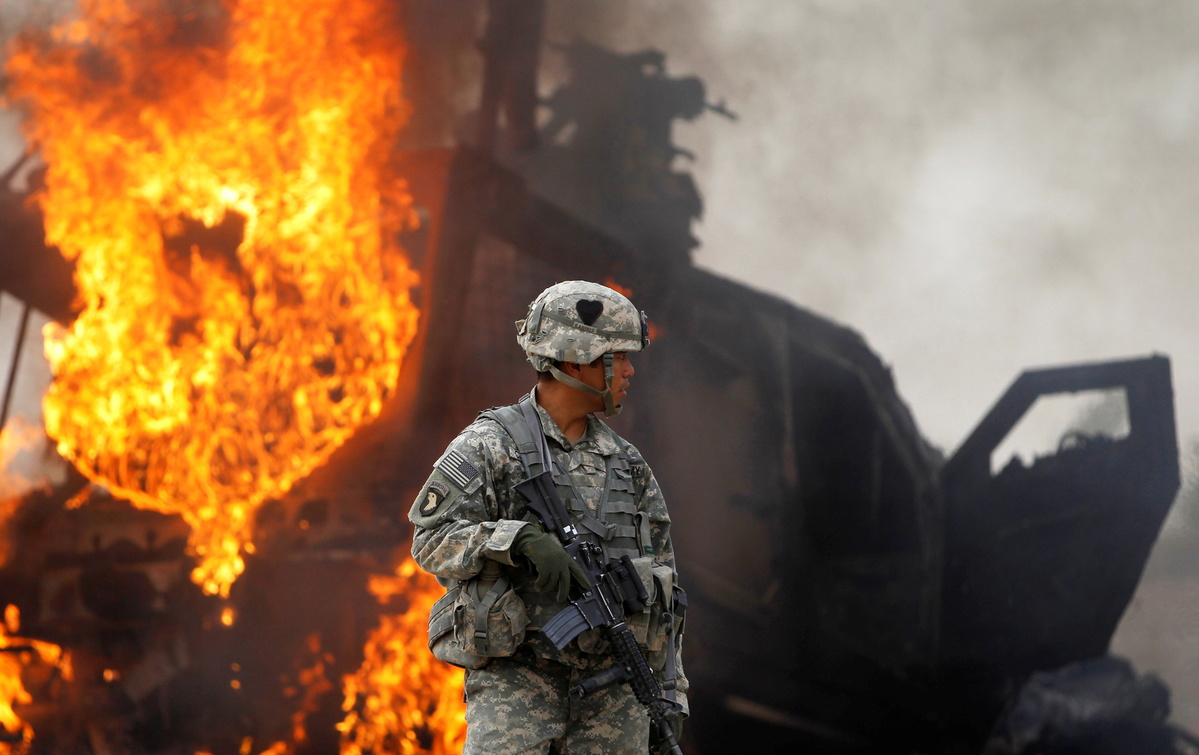US war record not one to boast of: China Daily editorial

FILE PHOTO: Captain Melvin Cabebe with the US Army's 1-320 Field Artillery Regiment, 101st Airborne Division stands near a burning M-ATV armored vehicle after it struck an improvised explosive device (IED) near Combat Outpost Nolen in the Arghandab Valley north of Kandahar, Afghanistan, July 23, 2010. [Photo/Agencies]
US Secretary of State Antony Blinken was grilled by lawmakers in a contentious hearing on Monday before the House Foreign Affairs Committee over how the administration had mishandled the military withdrawal from Afghanistan.
They called the process "a disaster" and "a disgrace". They tried to seek answers as to why Americans and Afghans who had worked for the US government for years were left behind in total chaos before the military completed its withdrawal on Aug 30. They demanded accountability.
Yet what they forgot or chose not to ask is why the United States had got itself mired in the mess of the "Graveyard of Empires" in the first place. To ensure the US avoids repeating the same mistake in the years to come, they should have taken the opportunity to start a collective soul-searching into why the world's sole superpower is so addicted to wars.
According to National Interest magazine, from 1948 to 1991, the US engaged in 46 military interventions. From 1992 to 2017 the number increased fourfold to 188.
Actually, the US has enjoyed only 16 years of peace in its 242-year history, making the country "the most warlike nation in the history of the world", as former US president Jimmy Carter noted in 2019 when he spoke with then incumbent leader Donald Trump. Carter attributed the penchant for war to the US trying to force other countries to "adopt our American principles".
Wars are costly, and it is US taxpayers who foot the bill. The war on terror that started in 2001, has cost the US an estimated $8 trillion, and claimed over 900,000 lives around the world over the past two decades, according to a report issued recently by the Costs of War Project of Brown University. The war in Afghanistan alone has cost $2.3 trillion. That represents $300 million a day over the 20 years.
Yet despite the high costs, some in the US may still believe the wars that Washington initiates are worth it as they are convinced by the rhetoric that they are launched for noble purposes — to free people from tyranny and repression, or in defense of freedom, democracy and human rights. But the fact is, concerns about US power and influence have risen in many countries around the world. According to a 2017 Pew survey, 39 percent of the respondents across 38 countries consider US influence and power a direct and major threat to their countries.
It is time the US learned the lessons of its failed wars. The world does not want its declaration that "America is back" to be a promise of more wars to come.
No comments:
Post a Comment